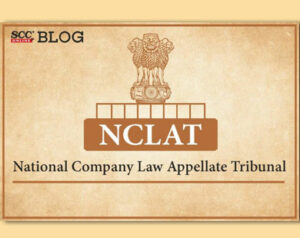National Company Law Appellate Tribunal, New Delhi: While deciding an application filed under S. 7 of the Insolvency and Bankruptcy Code, 2016, a bench comprising of Anant Bijay Singh, J. and Shreesha Merla* (Technical Member) held that the ‘date of default’ cannot be strictly construed as the date of NPA and if the Corporate Debtor makes any acknowledgement of debt and default within the period of limitation, the said period of limitation shall be extended to a further period of three years.
Facts of the Case
In the instant matter, the Corporate Debtor/Respondent had defaulted on repayment of loan on 31-03-2009 and their Account was declared as NPA on 30-06-2009. An application under S. 7 IBC was filed on 7-08-2020. The Corporate Debtor had acknowledged the debt by consistently mentioning it on their Balance Sheets till FY 2018-19. The Adjudicating Authority dismissed the petition on the ground that the same is barred by limitation. Aggrieved by the impugned Order dated 10-08-2021, an appeal was preferred under S. 61 IBC before this Tribunal.
Moot Point
Whether the present application under S. 7 IBC was barred by limitation and also holding that there was no ‘default’?
Parties Contentions
The appellant contended that the Corporate Debtor himself acknowledged the debt by consistently mentioning the same in Restructuring Letters, Request Letters and Balance Sheets, therefore, the date of NPA should be considered accordingly. Thus, the application was filed well within the period of Limitation.
On the other hand, the respondent contended that Corporate Debtor was declared an NPA way back on 30-06-2009 and this Tribunal cannot rely on letter of acknowledgements as mentioned by the appellant as there is no evidence on record to show that they were signed prior to the expiry of the three years Limitation from 2009.
The respondent relied on Reliance Asset Reconstruction Co. Ltd. v. Hotel Pooja International (P) Ltd., (2021) 7 SCC 352, where it was held that “the acknowledgement must be done prior to the expiry of three years of Limitation and reliance was not placed on documents which were not placed along with Section 7 Application.”
Tribunal’s Observation
Relying on Laxmi Pat Surana v. Union Bank of India, (2021) 8 SCC 481, where it was held that the ‘date of default’ does not mean a strict interpretation that it has to be the ‘date of NPA’ in fact, the ‘date of default’ defined under Section 3(12) of the Code is to mean ‘non-payment of a date which has become ‘due and payable’ whether in whole or any part and is not paid by the Corporate Debtor’, the Tribunal observed that all the material on record clearly shows that the Corporate Debtor has consistently acknowledged the debt from 31.03.2010 onwards by way of Restructuring Letters and Balance Sheets.
While deciding the issue of Limitation, the Tribunal relied on Dena Bank v. C. Shivakumar Reddy, (2021) 10 SCC 330, and opined that there is a ‘debt’ and ‘default’ and the application filed under S. 7 IBC is not ‘barred by Limitation’.
Tribunal’s Decision
Allowing the appeal, the Tribunal held that the limitation period of three years cannot be strictly construed to have commenced from the date of default/declaration of the Corporate Debtor’s account as NPA and the present application was not barred by limitation as the Corporate Debtor/respondent has consistently acknowledged the debt and default between 2009-10 to 2018-2019.
[Edelweiss Asset Reconstruction Co. Ltd. v. Perfect Engine Components (P) Ltd., 2022 SCC OnLine NCLAT 1622, decided on 22-12-2022]
Advocates who appeared in this case:
Mr. Neeraj Malhotra (Senior Advocate), Ms. Vidhisha Haritwal, Mr. Nimish Kumar and Ms. Shreya Singh, Counsel for the Appellant;
Mr. Kumar Anurag Singh, Mr. Zain A. Khan and Ms. Ekta Bharti, Counsel for the Respondent.
*Ritu Singh, Editorial Assistant has put this report together.

